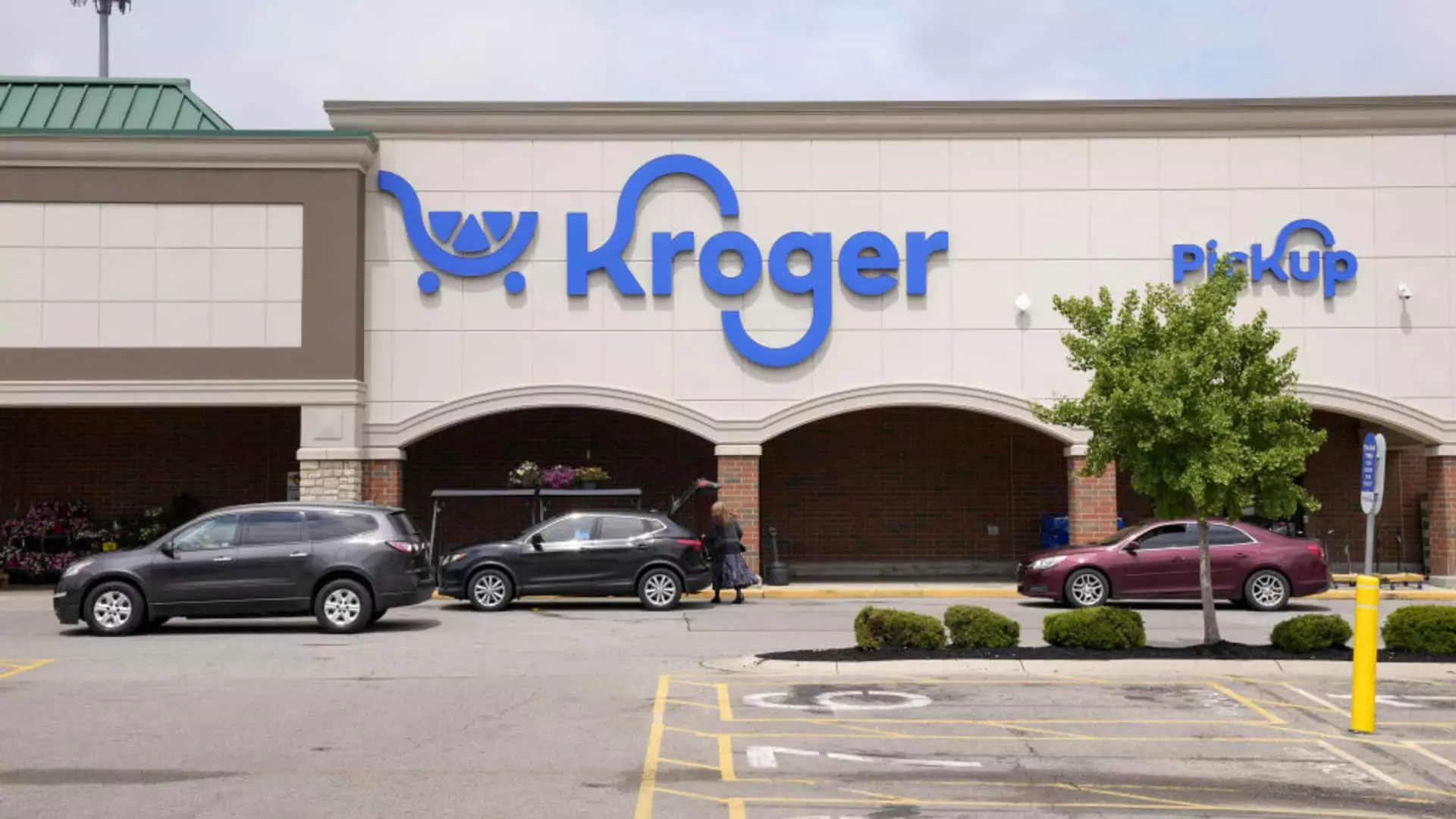Kroger, a stalwart in the supermarket sector, has made headlines recently with a notable 10% surge in its stock prices, responding to an optimistic outlook for the fiscal year. This uptick, although impressive, represents a larger narrative relevant to today’s economic landscape where consumers increasingly turn to budget-friendly alternatives. The company has revised its sales projections, signaling an increase in identical sales—2.25% to 3.25%—which surpasses previous estimates. It’s fascinating to note that this performance metric, stripped of one-time events like store openings or renovations, offers a clearer view of Kroger’s core business vitality.
When juxtaposing Kroger’s performance with the broader S&P 500, which has barely crept up by about 1%, it’s clear that Kroger’s strategies are resonating well with consumers intent on saving money in a climate of rising living costs. However, while the numbers give a glimpse of resilience, they raise questions about sustainability in an era where consumers are tightening their belts and scrutinizing every penny spent.
Shifting Shopping Habits: The Value-Driven Consumer
A significant factor behind Kroger’s recent success revolves around changing consumer behaviors. As inflation persists and dining out becomes less financially feasible, shoppers are gravitating towards grocery stores for economical meal options. Interim CEO Ron Sargent’s strategy reflects a keen understanding of this shift—emphasizing price reductions on over 2,000 products and enhancing private label offerings. Here lies a critical observation: the concept of value has transformed dramatically, leading to the rise of private brands such as Simple Truth and Private Selection, which have outperformed traditional national brands.
Sargent’s insights into consumer purchasing patterns are compelling; a marked increase in the purchase of larger pack sizes and a return to coupons epitomize a cost-conscious mindset. This represents a significant shift in consumer psychology—a reaction not merely to economic pressures but also a broader cultural reinforcement of frugality and practicality. The evolution from discretionary spending on luxury snacks and alcohol to basic grocery essentials could redefine retail growth trajectories, with Kroger positioned strategically within this transition.
Leadership Changes and Strategic Adaptation
Despite positive sales figures, Kroger isn’t without its internal turmoil. The company has navigated significant leadership changes over the past year, including the resignation of CEO Rodney McMullen amid a scandal and subsequent investigations. These factors inevitably lead to uncertainty within the organization. The recent appointment of David Kennerley as the new CFO aims to stabilize financial processes during a tumultuous period. Transitioning leadership during challenging times often leads to setbacks, but could also pave the way for rejuvenated strategic approaches.
Additionally, Kroger’s legal entanglements regarding its thwarted merger with competitor Albertsons underscore a vital narrative in the grocery sector: consolidation. The attempt to merge underlines the need for scale to compete effectively against retail giants like Walmart and Costco. The barriers raised by anticipated tariffs further complicate the grocery landscape, making Kroger’s positioning essential for consumers seeking value amidst a complex market.
Future Aspirations: E-Commerce and Store Real Estate
Kroger’s journey toward profitability in its e-commerce division echoes a broader trend within the retail industry. The firm has acknowledged that curbside pickup and home deliveries are not yet profitable, an indication that the digital space poses its own set of challenges. However, with e-commerce sales advancing by 15%, Kroger seems poised for greater engagement in this area, as evidenced by ongoing initiatives to refine this sector.
The company’s announced closure of around 60 unprofitable stores signifies a strategic tightening that might be unpopular among local communities but is necessary for reinvigorating the business model. The dichotomy of shuttering underperforming locations while simultaneously planning new store openings in growth markets paints a picture of a company in transition. This renewal strategy will ultimately hinge on Kroger’s willingness to adapt and innovate within a fiercely competitive landscape.
Looking Ahead: Strategic Forward Movement
Despite the litany of challenges—leadership transitions, legal battles, and intensified competition—Kroger’s recent financial performance demonstrates a commitment to serve value-driven consumers. The brand’s ability to adapt to rapidly changing consumer behaviors offers a glimmer of hope in an industry that is under continuous pressure to reevaluate its relevance. As Kroger navigates these uncharted waters, the evolving relationship between consumers and grocery retailers may very well dictate the supermarket’s future and its resilience in the face of market changes.


Leave a Reply